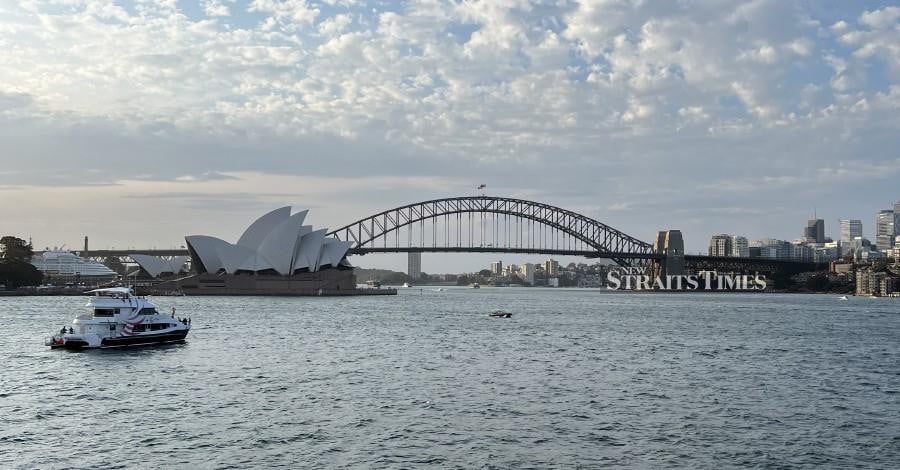MY inaugural visit to the land Down Under was an unforgettable sojourn to the World Expo in Brisbane back in 1988. Inaugurated with regal splendour by the late Queen Elizabeth II, the event catapulted the Australian city Brisbane onto the global stage as the "Sunshine" capital, simultaneously casting the Gold Coast into the limelight of international recognition. Little did I know that this expedition would be a plunge into the rich tapestry of Australia's past, present and future.
The Aussie spirit, with its charming colloquialisms of "fair dinkum" and "Good day, mate!", left an indelible mark on my heart. The resonance of their iconic song, Waltzing Matilda, lingered in the air, eclipsing even the national anthem Advance Australia Fair in popularity. Australia, it seemed, was more than a country; it was a celebration of life and camaraderie.
Venturing beyond Brisbane, I traversed the landscapes of Sydney, Melbourne, Adelaide, and Perth. In the 1980s, these cities appeared tranquil compared with the bustling urban hubs of Kuala Lumpur and Singapore. A peculiar calmness enveloped them as shops shuttered at 5pm, and nightlife was a mere whisper in the urban symphony.
Fast forward to the present, and the Australian cities stand transformed. Evolving into cosmopolitan metropolises, they now host a spectrum of international businesses and boast vibrant nightlife scenes. The economic transformation is a testament to Australia's resilience, with a 20-year economic boom showcasing its title as the "Lucky Country".
Australia's prosperity isn't solely attributed to economic factors. The influx of immigrants, more than 100 nationalities since the 1980s, has played a pivotal role. War refugees from Vietnam, the Middle East, and various corners of the globe have added layers of diversity to the social fabric. Among these newcomers, a notable community of Malaysians and Singaporeans has thrived, contributing to the country's cultural mosaic.
Yet, behind Australia's multicultural facade lies a dark history. The abolishment of the discriminatory "White Australian policy" in 1975 marked a turning point, revealing a troubled racial past.
The plight of the stolen generations, the abuses suffered by the aborigines, lingered until a national apology was issued in 2008. The Chinese settlers during the gold rush faced similar hardship, their success sparking riots and brutal attacks.
MALAYSIAN STORIES
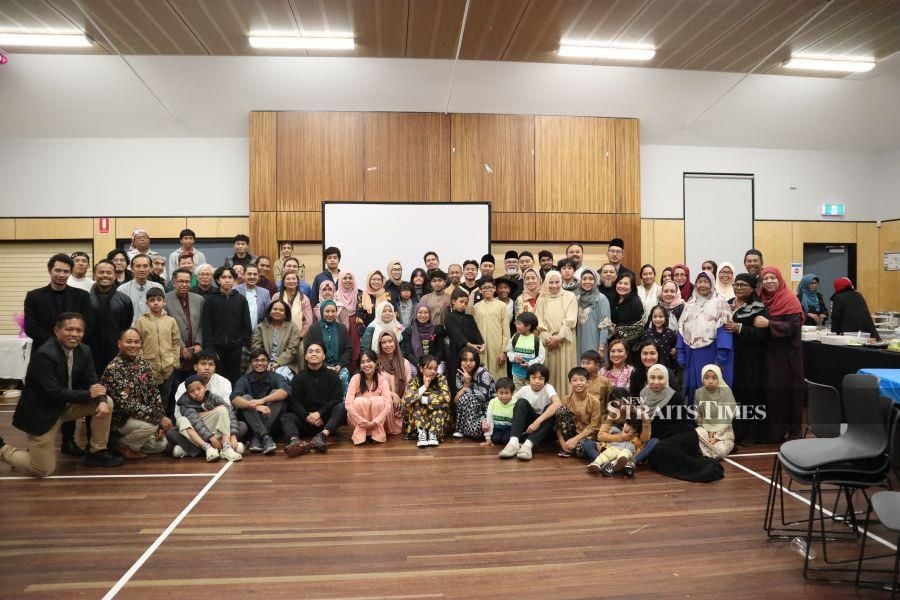
In a recent exploration of the Australian diaspora, I encountered Malaysians who have seamlessly integrated into the Aussie way of life. Their stories, weaving between memories of Malaysian kampungs and the challenges faced in Australia, underscored a profound emotional connection to their roots.
One such individual is Dr Raja Yasmin Raja Abdul Malek, a force to be reckoned with. Hailing from Ipoh, she left for Melbourne, Australia in 2007 for its liberal culture and her children's education. While pursuing a PhD at Monash University, she was also raising her four children.
Her amazing juggling skill is evidenced in the many roles that she plays today. Besides broadcasting for 3zzz, a local ethnic community radio station, she's also a sought-after speaker, trainer, business consultant, and leadership and motivation coach. In recognition of her outstanding contribution, she was awarded the Australian Coach of the Year award in 2019.
Dedicated and determined, Yasmin is a strong advocate of women's empowerment. In her life and career, she has had to overcome gender stereotyping and prejudice before achieving success. Her book, She Inspires Leaders, stands as a testament to her commitment to women's empowerment.
Today, Yasmin is the president of the Malay council of Victoria. One of her concerns is how young Malays and Malaysians navigate their life in Australia as they seek a new identity in a multicultural society.
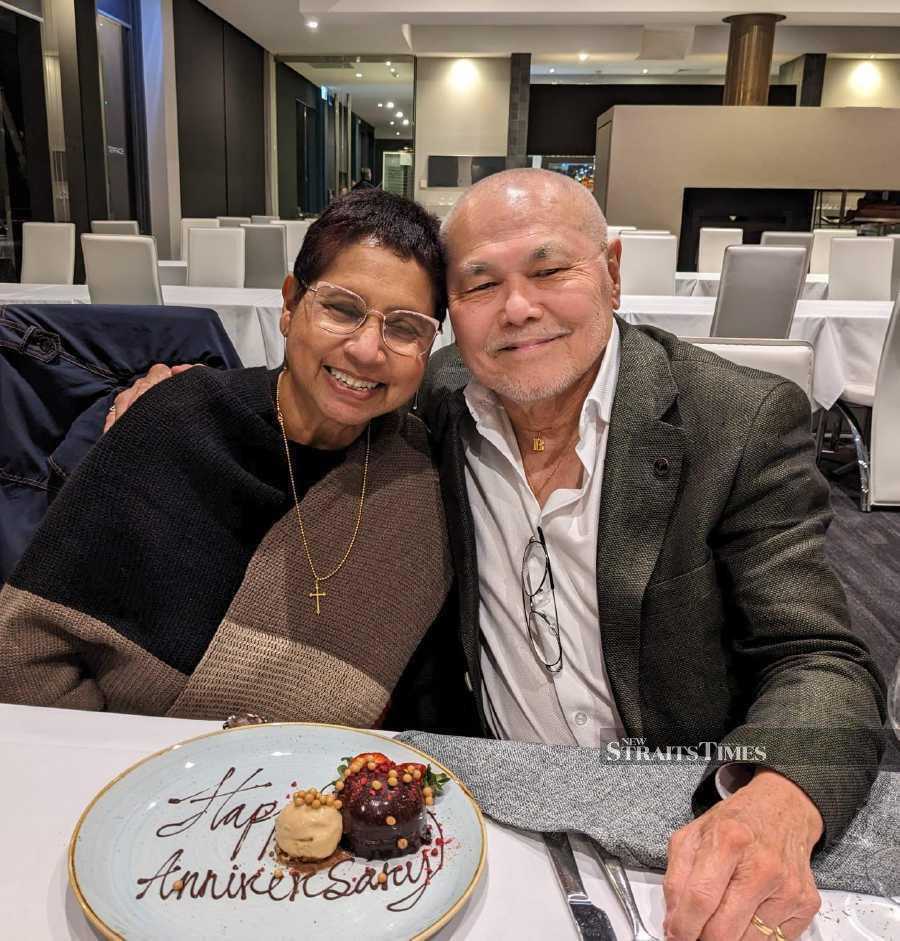
Another luminary among the Malaysian diaspora is Boey Kok Choy.
Rising from a humble background in Taiping, Boey was the editor of Malay Mail from 1967 to 1989 before relocating to Melbourne.
As the editor, he was actively involved in organising the popular Big Walk and "Hotline". Meanwhile, his wife, Hannah Abisheganaden, produced cook books and organised cookery sessions for Her World magazine.
Out of professional curiosity and concern for his children's education, Boey moved to Melbourne with his family and worked as a copy editor with the Age, a respected newspaper in Australia some time in 1990.
Throughout his career, Boey was a strong advocate of "developmental journalism", with a heart for the common people and their struggles in life. His weekly "Letter from Australia" series for the New Sunday Times from 1990 to 2009 were refreshing and thought-provoking.
In one of his articles, he extolled the transparency culture in Australia by sharing how the premier of New South Wales had to resign for failing to declare a bottle of wine costing merely A$3,000. Although he's now retired, he's still actively promoting social justice through his leadership at the "Conversation at Crossroad" club.
OVERCOMING CHALLENGES
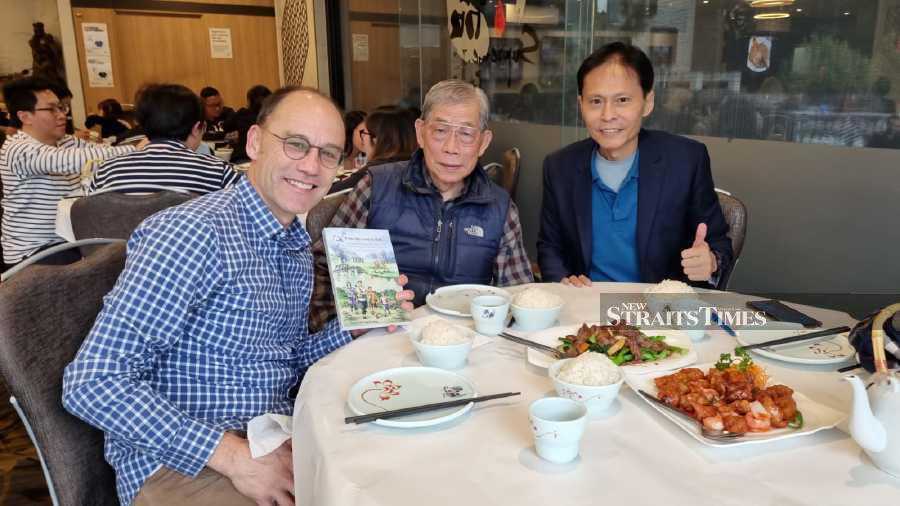
The story of Quay Ong Chin, an outstanding student and sportsman, unfolds a different narrative. His journey from Victoria Institution in Kuala Lumpur to studying accountancy in Melbourne in 1962 is intertwined with a love story that led to marriage with a white Australian girl.
After marriage, Quay brought his family back to Kuala Lumpur. He worked in Sime Darby and his wife, Dr Anne D'Arcy, worked at the University of Malaya Hospital. As a qualified medical specialist, she'd taught hundreds of young doctors and touched the lives of thousands of patients in Malaysia.
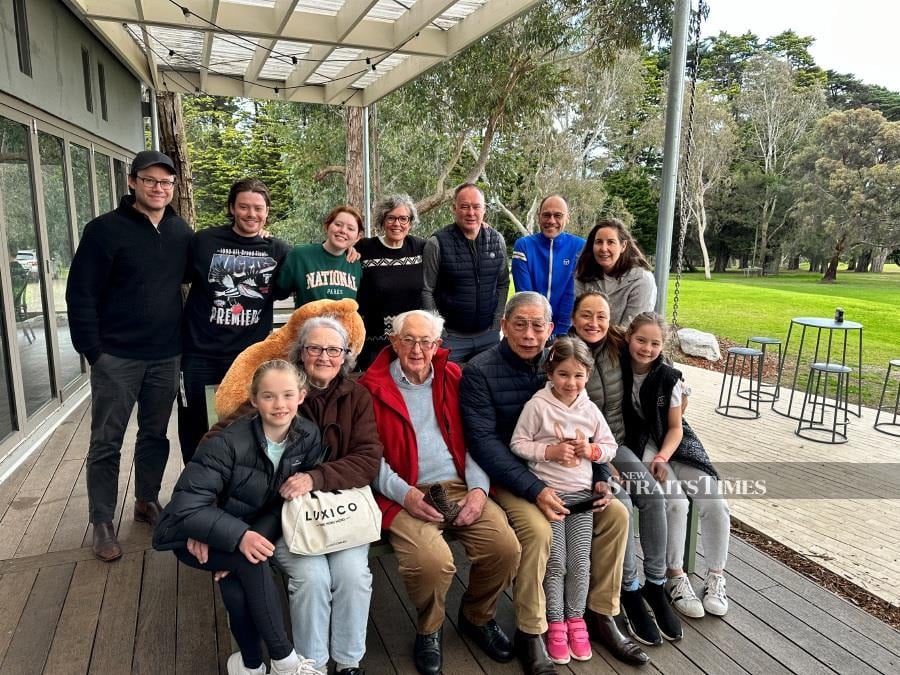
After several years, the family returned to Melbourne to settle down. It wasn't easy for Quay to bring up his three children in Australia in the 1970s. Despite the prevailing racist sentiments then, he managed to overcome it in the end. His three children are highly successful in their respective professions today — a testimony of his fortitude and positive fatherhood.
Today, Quay is 92 and keeps fit by playing badminton and doing community work. Despite being retired, his wife Dr D'Arcy continues to help out at the Emergency Department of Royal Melbourne Hospital, a place she used to helm for decades. For her lifetime of selfless contribution, Dr D'Arcy was awarded a special service medal by Queen Elizabeth in 2011.
HOME WHERE THE HEART IS
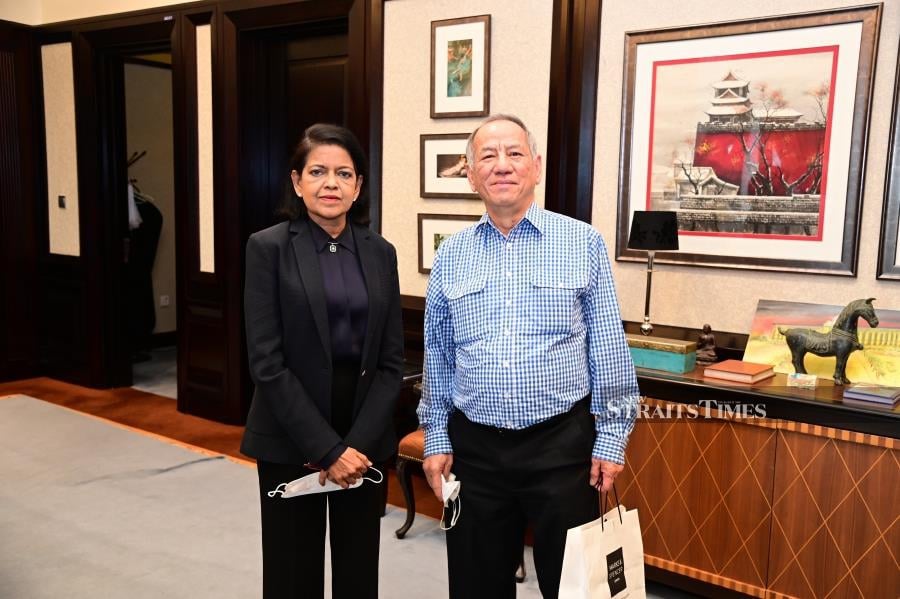
Emeritus Professor Lee Hoong Phun, born in Penang in 1947 and studied at St Xavier's Institution, epitomises the fusion of professional excellence and familial bliss in Melbourne. After completing his LLB Bachelor of Laws from the National University of Singapore, he worked as a tutor in the Law Faculty of the Universiti of Malaya before pursuing his PhD at Monash University in Melbourne.
A distinguished legal scholar, he rose to become the Sir John Latham Chair of Law at Monash University. In his long and illustrious career, Lee had taught many generations of students, many of whom had scaled great heights.
Among them is Dr Choo Kah Sing, who was elevated to the Malaysian Court of Appeal. Lee has also written extensively about the Constitutional Law of Australia and Malaysia.
Outside of his work, Lee actively contributed to the promotion of an independent and free press as vice-chairman of the Australian Press Council for many years. It was a prestigious but demanding position. He strongly believes in the Rule of Law, a fair election system and an independent and impartial judiciary in order to protect fundamental freedoms.
Looking back, Lee recounts with joy that Melbourne is a good place to live and bring up a family. He's blessed with two beautiful granddaughters, whom he and his wife dote over. His memories of Penang remain fond, and he dearly misses its famous satay, nasi lemak and char kuey teow.
JOURNEY TO REMEMBER
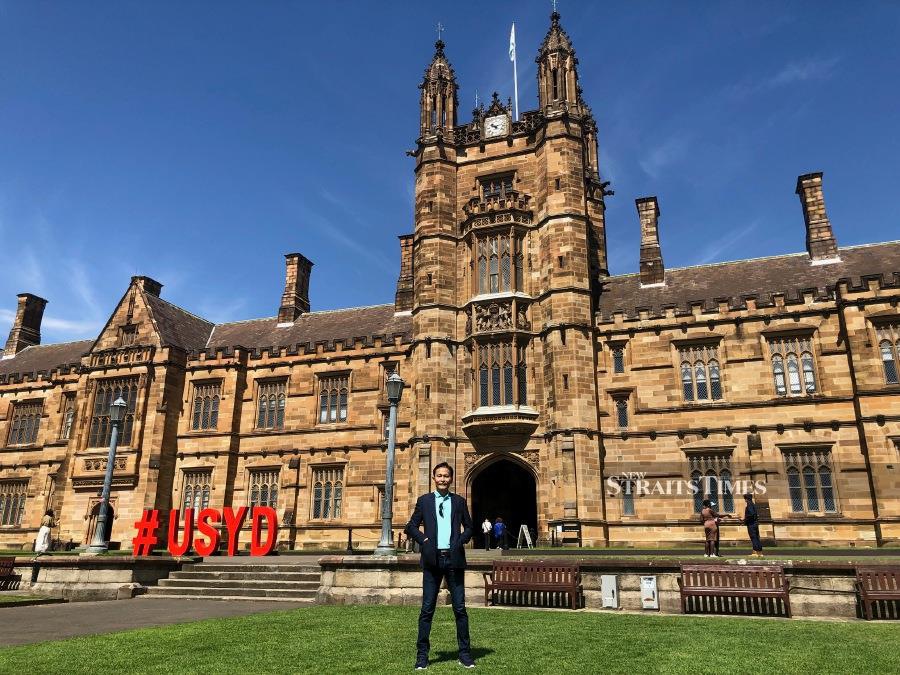
The journey of these remarkable individuals mirrors the broader tale of the Malaysian diaspora in Australia. Initially grappling with the complexities of a new country and identity, they have thrived, enriching their experiences and perspectives.
Their stories are not just personal anecdotes; they're a reservoir of wisdom, offering lessons to all who care to listen. As we peer into the future, it becomes evident that while Australia may be their adopted home, the hearts of the Malaysian diaspora still beat with the rhythms of their motherland. The bonds may have stretched across oceans, but the connection to Malaysia remains unbroken.
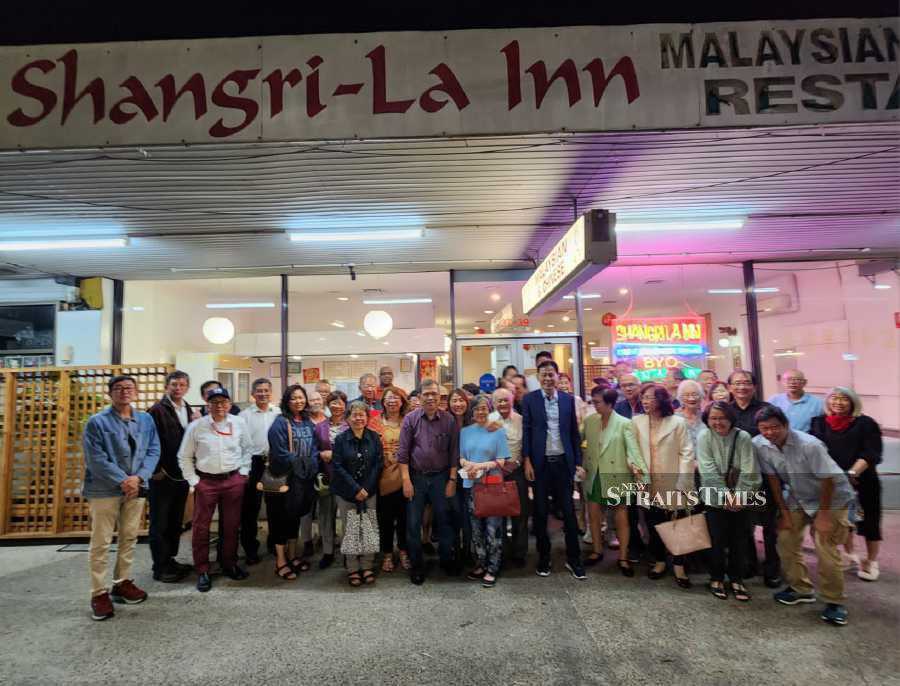
In expressing gratitude to those who shared their stories, Cheryl Lit, John Quay, Quay Ong Chin, Jonah and Jenny Cheng, Judy Ngei, K.C. Boey, K.K. Low, Lee Hoong Phun, Lai Meng, Pow Kam Weng, Oh Saw Yin, Raja Yasmin, Raymond Wong, Gerald Koe and Yeoh-Tong Chia, the profound realisation dawns: the lucky country Down Under isn't just a geographical entity; it's a mosaic of shared histories and enduring connections.
Gary Lit Ying Loong is a retired academic from Nanyang Technological University (NTU) Singapore. He's presently a visiting professor to some universities in Asia and Europe. Reach him at [email protected].


